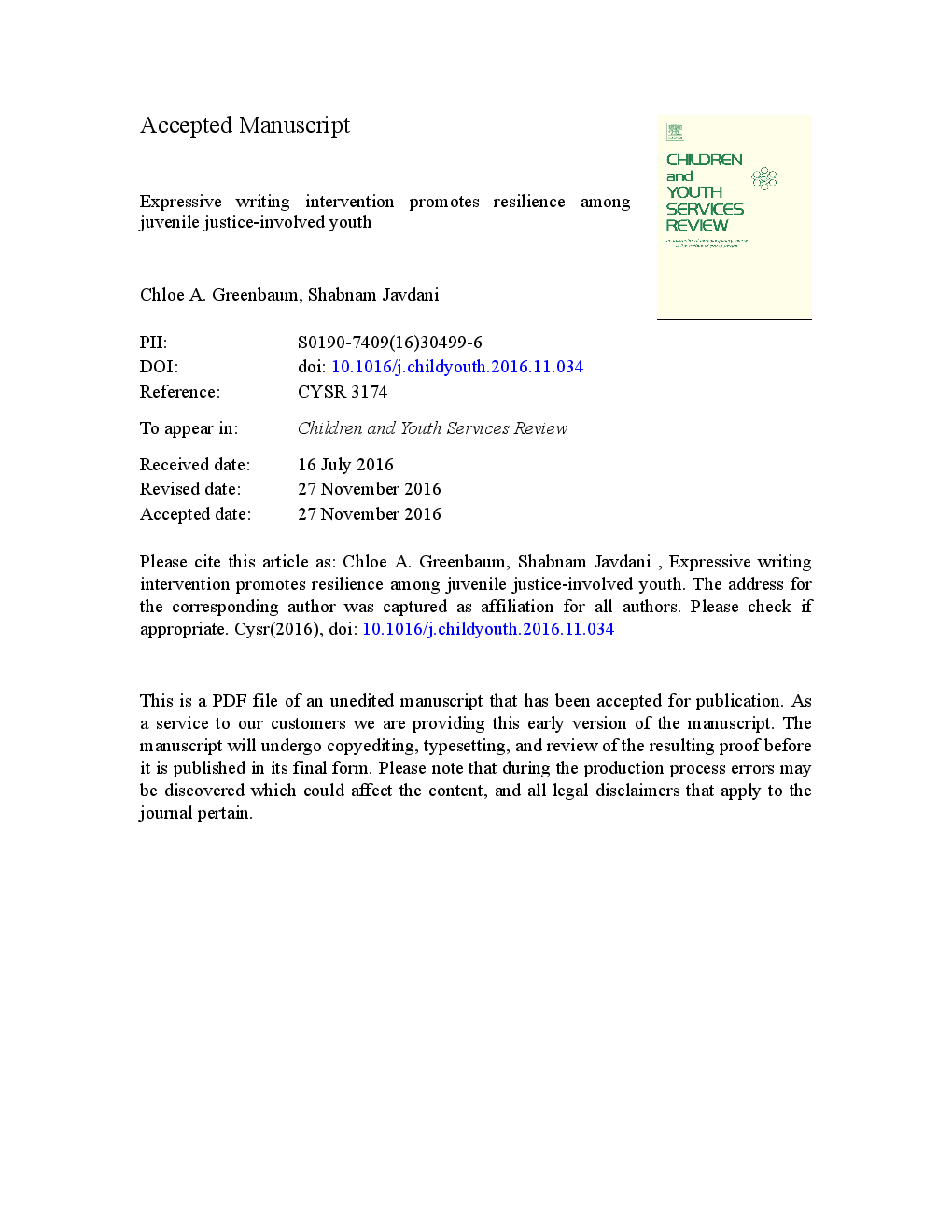ترجمه فارسی عنوان مقاله
مداخله نوشتاری بیانگر تضمین استعداد در میان جوانان عدالت نوجوان است
عنوان انگلیسی
Expressive writing intervention promotes resilience among juvenile justice-involved youth
| کد مقاله | سال انتشار | تعداد صفحات مقاله انگلیسی |
|---|---|---|
| 126412 | 2017 | 49 صفحه PDF |
منبع

Publisher : Elsevier - Science Direct (الزویر - ساینس دایرکت)
Journal : Children and Youth Services Review, Volume 73, February 2017, Pages 220-229
ترجمه کلمات کلیدی
عدالت برای نوجوانان، رفاه کودکان، نوجوانان، تروما انعطاف پذیری، ارزیابی برنامه،
کلمات کلیدی انگلیسی
Juvenile justice; Child welfare; Adolescents; Trauma; Resilience; Program evaluation;

